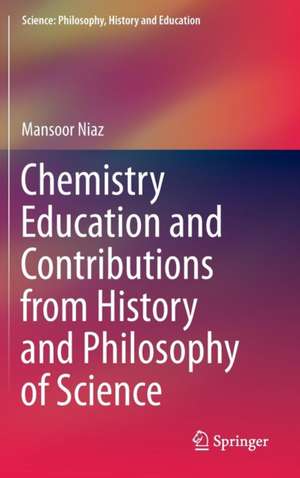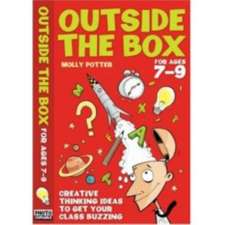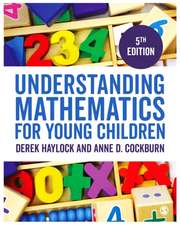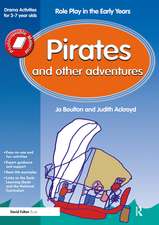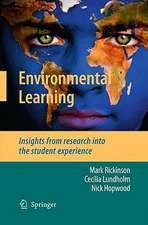Chemistry Education and Contributions from History and Philosophy of Science: Science: Philosophy, History and Education
Autor Mansoor Niazen Limba Engleză Hardback – 6 ian 2016
The importance of HPS has been recognized for the science curriculum since the middle of the 20th century. The need for teaching chemistry within a historical context is not difficult to understand as HPS is not far below the surface in any science classroom. A review of the literature shows that the traditional chemistry classroom, curricula, and textbooks while dealing with concepts such as law, theory, model, explanation, hypothesis, observation, evidence and idealization, generally ignore elements of the history and philosophy of science. This book proposes that the conceptual understanding of chemistry requires knowledge and understanding of the history and philosophy of science.
“Professor Niaz’s book is most welcome, coming at a time when there is an urgently felt need to upgrade the teaching of science. The book is a huge aid for adding to the usual way - presenting science as a series of mere facts - also the necessary mandate: to show how science is done, and how science, through its history and philosophy, is part of the cultural development of humanity.”
Gerald Holton, Mallinckrodt Professor of Physics & Professor of History of Science, Harvard University
“In this stimulating and sophisticated blend of history of chemistry, philosophy of science, and science pedagogy, Professor Mansoor Niaz has succeeded in offering a promising new approach to theteaching of fundamental ideas in chemistry. Historians and philosophers of chemistry --- and above all, chemistry teachers --- will find this book full of valuable and highly usable new ideas”
Alan Rocke, Case Western Reserve University
“This book artfully connects chemistry and chemistry education to the human context in which chemical science is practiced and the historical and philosophical background that illuminates that practice. Mansoor Niaz deftly weaves together historical episodes in the quest for scientific knowledge with the psychology of learning and philosophical reflections on the nature of scientific knowledge and method. The result is a compelling case for historically and philosophically informed science education. Highly recommended!”
Harvey Siegel, University of Miami
“Books that analyze the philosophy and history of science in Chemistry are quite rare. ‘Chemistry Education and Contributions from History and Philosophy of Science’ by Mansoor Niaz is one of the rare books on the history and philosophy of chemistry and their importance in teaching this science. The book goes through all the main concepts of chemistry, and analyzes the historical and philosophical developments as well as their reflections in textbooks.
Closest to my heart is Chapter 6, which is devoted to the chemical bond, the glue that holds together all matter in our earth. The chapter emphasizes the revolutionary impact of the concept of the ‘covalent bond’ on the chemical community and the great novelty of the idea that was conceived 11 years before quantum mechanics was able to offer the mechanism of electron pairing and covalent bonding. The author goes then to describe the emergence of two rival theories that explained the nature of the chemical bond in terms of quantum mechanics; these are valence bond (VB) and molecular orbital (MO) theories. He emphasizes the importance of having rival theories and interpretations in science and its advancement. He further argues that this VB-MO rivalry is still alive and together the two conceptual frames serve as the tool kit for thinking and doing chemistry in creative manners. The author surveys chemistry textbooks in the light of the how the books preserve or not the balance between the two theories in describing various chemical phenomena. This Talmudic approach of conceptual tension is a universal characteristic of any branch of evolving wisdom. As such, Mansoor’s book would be of great utility for chemistry teachers to examine how can they become more effective teachers by recognizing the importance of conceptual tension”.
Sason Shaik
Saeree K. and Louis P. Fiedler Chair in Chemistry
Director, The Lise Meitner-Minerva Center for Computational Quantum Chemistry,
The Hebrew University of Jerusalem, ISRAEL
| Toate formatele și edițiile | Preț | Express |
|---|---|---|
| Paperback (1) | 558.62 lei 38-44 zile | |
| Springer International Publishing – 30 mar 2018 | 558.62 lei 38-44 zile | |
| Hardback (1) | 591.23 lei 38-44 zile | |
| Springer International Publishing – 6 ian 2016 | 591.23 lei 38-44 zile |
Preț: 591.23 lei
Preț vechi: 777.95 lei
-24% Nou
Puncte Express: 887
Preț estimativ în valută:
113.13€ • 118.44$ • 93.61£
113.13€ • 118.44$ • 93.61£
Carte tipărită la comandă
Livrare economică 01-07 aprilie
Preluare comenzi: 021 569.72.76
Specificații
ISBN-13: 9783319262468
ISBN-10: 3319262467
Pagini: 250
Ilustrații: XX, 250 p.
Dimensiuni: 155 x 235 x 16 mm
Greutate: 0.56 kg
Ediția:1st ed. 2016
Editura: Springer International Publishing
Colecția Springer
Seria Science: Philosophy, History and Education
Locul publicării:Cham, Switzerland
ISBN-10: 3319262467
Pagini: 250
Ilustrații: XX, 250 p.
Dimensiuni: 155 x 235 x 16 mm
Greutate: 0.56 kg
Ediția:1st ed. 2016
Editura: Springer International Publishing
Colecția Springer
Seria Science: Philosophy, History and Education
Locul publicării:Cham, Switzerland
Public țintă
ResearchCuprins
Preface.- Acknowledgments.- Foreword.- Chapter 1 Introduction.- Chapter 2 Models, theories and laws in philosophy of science and science education.- Chapter 3 Nature of science in science education: An integrated view.- Chapter 4 Understanding atomic models in chemistry: Why do models change?.- Chapter 5 Understanding stoichiometry: Do scientific laws help in learning science?.- Chapter 6 Understanding valence bond and molecular orbital models: Contingency at work.- Chapter 7 An overview of research in chemistry education.- Chapter 8 Conclusions: From empiricism to historicism to naturalism and beyond.- References.- Appendices.
Recenzii
“What is refreshing about this book by Niaz is the significant weight given to both philosophical and historical discussion as they relate to chemistry education. … I have found this book a valuable resource to read and have made available for more in-depth chemistry topics with which I have to deal.” (Kevin C. de Berg, Science & Education, August, 2016)
“The book consists of eight chapters, including an introduction, two theoretical chapters, four chapters dedicated to specific scientific topics, and a conclusion. … I find this book well researched and an excellent guide to literature on historical cases for those who want to read about the cases and studies on their use in education. … I will definitely use the book when preparing my own teaching.” (Annette Lykknes, British Journal for the History of Science, Vol. 49 (3), 2016)
“The book consists of eight chapters, including an introduction, two theoretical chapters, four chapters dedicated to specific scientific topics, and a conclusion. … I find this book well researched and an excellent guide to literature on historical cases for those who want to read about the cases and studies on their use in education. … I will definitely use the book when preparing my own teaching.” (Annette Lykknes, British Journal for the History of Science, Vol. 49 (3), 2016)
Notă biografică
Mansoor Niaz is Professor of Science Education at the Universidad de Oriente, Venezuela. His research interests include the application of history, philosophy of science and cognitive psychology to science education. He has published over 150 articles in international refereed journals and 8 books in the last five years by international publishers.
Textul de pe ultima copertă
This book explores the relationship between the content of chemistry education and the history and philosophy of science (HPS) framework that underlies such education. It discusses the need to present an image that reflects how chemistry developed and progresses. It proposes that chemistry should be taught the way it is practiced by chemists: as a human enterprise, at the interface of scientific practice and HPS. Finally, it sets out to convince teachers to go beyond the traditional classroom practice and explore new teaching strategies.
The importance of HPS has been recognized for the science curriculum since the middle of the 20th century. The need for teaching chemistry within a historical context is not difficult to understand as HPS is not far below the surface in any science classroom. A review of the literature shows that the traditional chemistry classroom, curricula, and textbooks while dealing with concepts such as law, theory, model, explanation, hypothesis, observation, evidence and idealization, generally ignore elements of the history and philosophy of science. This book proposes that the conceptual understanding of chemistry requires knowledge and understanding of the history and philosophy of science.
“Professor Niaz’s book is most welcome, coming at a time when there is an urgently felt need to upgrade the teaching of science. The book is a huge aid for adding to the usual way - presenting science as a series of mere facts -also the necessary mandate: to show how science is done, and how science, through its history and philosophy, is part of the cultural development of humanity.”
Gerald Holton, Mallinckrodt Professor of Physics & Professor of History of Science, Harvard University“In this stimulating and sophisticated blend of history of chemistry, philosophy of science, and science pedagogy, Professor Mansoor Niaz has succeeded in offering a promising new approach to the teaching of fundamental ideas in chemistry. Historians and philosophers of chemistry - and above all, chemistry teachers - will find this book full of valuable and highly usable new ideas”
Alan Rocke, Case Western Reserve University
“This book artfully connects chemistry and chemistry education to the human context in which chemical science is practiced and the historical and philosophical background that illuminates that practice. Mansoor Niaz deftly weaves together historical episodes in the quest for scientific knowledge with the psychology of learning and philosophical reflections on the nature of scientific knowledge and method. The result is a compelling case for historically and philosophically informed science education. Highly recommended!”
Harvey Siegel, University of Miami
The importance of HPS has been recognized for the science curriculum since the middle of the 20th century. The need for teaching chemistry within a historical context is not difficult to understand as HPS is not far below the surface in any science classroom. A review of the literature shows that the traditional chemistry classroom, curricula, and textbooks while dealing with concepts such as law, theory, model, explanation, hypothesis, observation, evidence and idealization, generally ignore elements of the history and philosophy of science. This book proposes that the conceptual understanding of chemistry requires knowledge and understanding of the history and philosophy of science.
“Professor Niaz’s book is most welcome, coming at a time when there is an urgently felt need to upgrade the teaching of science. The book is a huge aid for adding to the usual way - presenting science as a series of mere facts -also the necessary mandate: to show how science is done, and how science, through its history and philosophy, is part of the cultural development of humanity.”
Gerald Holton, Mallinckrodt Professor of Physics & Professor of History of Science, Harvard University“In this stimulating and sophisticated blend of history of chemistry, philosophy of science, and science pedagogy, Professor Mansoor Niaz has succeeded in offering a promising new approach to the teaching of fundamental ideas in chemistry. Historians and philosophers of chemistry - and above all, chemistry teachers - will find this book full of valuable and highly usable new ideas”
Alan Rocke, Case Western Reserve University
“This book artfully connects chemistry and chemistry education to the human context in which chemical science is practiced and the historical and philosophical background that illuminates that practice. Mansoor Niaz deftly weaves together historical episodes in the quest for scientific knowledge with the psychology of learning and philosophical reflections on the nature of scientific knowledge and method. The result is a compelling case for historically and philosophically informed science education. Highly recommended!”
Harvey Siegel, University of Miami
Caracteristici
Proposes a framework for the teaching of chemistry in the light of History and Philosophy of Science (HPS) Reviews the results and conclusions of current research in chemistry education Highlights the importance of creativity, imagination, insight, experiments, and controversies in the progress of chemistry
